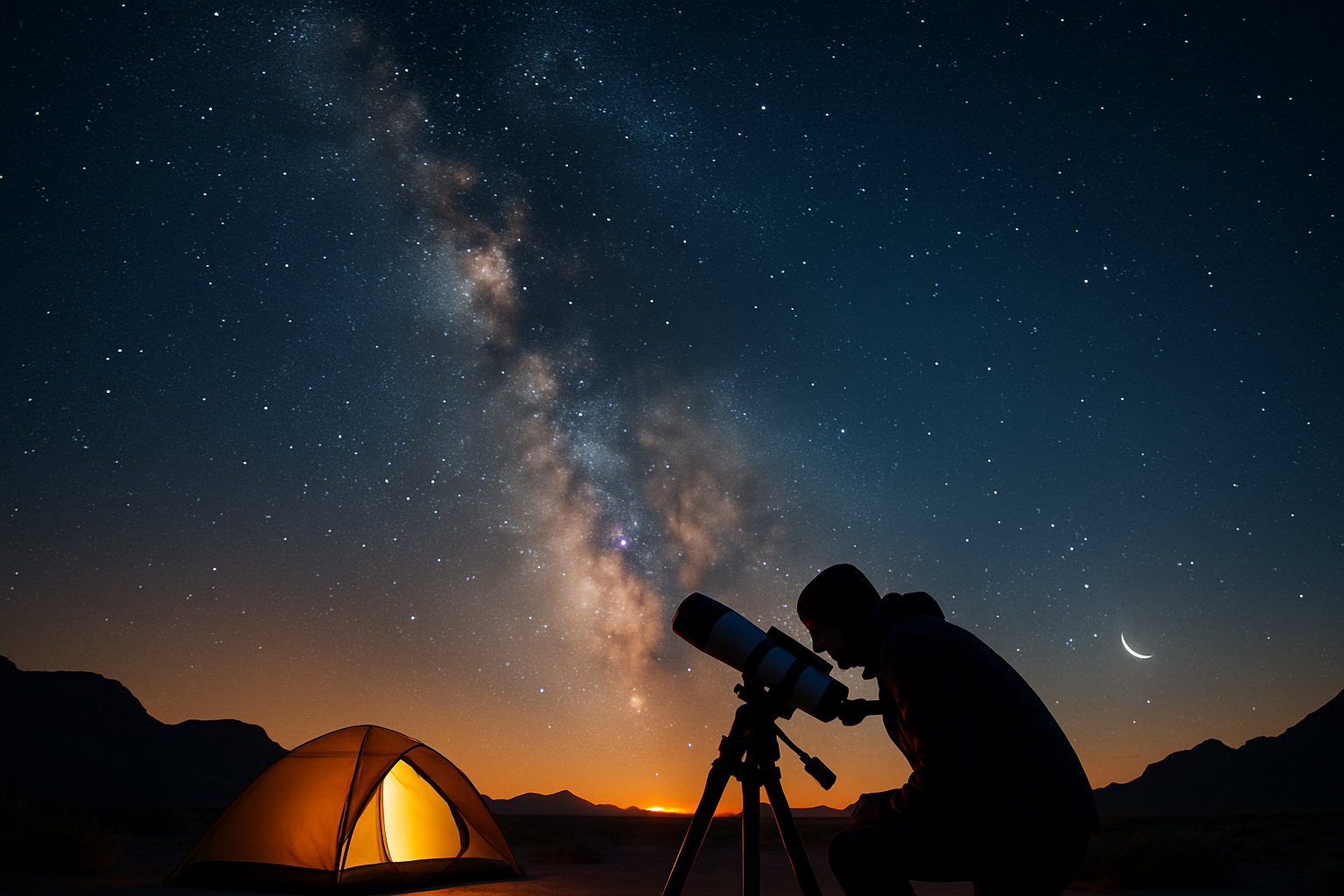Astro-Tourism: Stargazing Adventures in Dark Sky Destinations
Imagine a journey where the destination is not a place, but the vast expanse of the night sky. Astro-tourism, an emerging trend in travel, invites adventurers to explore the cosmos from Earth's most pristine dark sky locations. This celestial pursuit combines the thrill of discovery with the serenity of nature, offering a unique perspective on our place in the universe. As light pollution dims the stars in urban areas, dark sky destinations have become beacons for those seeking to reconnect with the night sky's wonders.

Dark Sky Destinations: Where to Find Celestial Wonders
Across the globe, certain locations stand out for their exceptional stargazing conditions. These dark sky destinations boast minimal light pollution, high elevation, and clear atmospheric conditions, creating perfect settings for celestial observations. Notable locations include the NamibRand Nature Reserve in Namibia, known for its expansive desert skies, and the Aoraki Mackenzie International Dark Sky Reserve in New Zealand, where the Southern Cross and Magellanic Clouds shine brilliantly. In North America, the natural amphitheaters of Utah’s National Parks offer breathtaking views of the Milky Way, while Hawaii’s Mauna Kea summit provides world-class astronomical research facilities alongside public viewing areas.
The Science and Art of Stargazing
Astro-tourism isn’t just about seeing stars; it’s an immersive experience that combines elements of astronomy, physics, and mythology. Many dark sky destinations offer educational programs led by expert astronomers, introducing visitors to the basics of celestial navigation and the cultural significance of constellations across different civilizations. Advanced tours may include the use of high-powered telescopes to observe distant galaxies, nebulae, and planets. For photography enthusiasts, astrophotography workshops provide instruction on capturing the night sky’s beauty, from star trails to the ethereal glow of the aurora borealis.
Economic and Environmental Impact
The growth of astro-tourism has had a significant positive impact on local economies, particularly in remote areas. Dark sky destinations often see increased visitor numbers during typically off-peak seasons, as optimal stargazing conditions often coincide with cooler months. This influx of tourists supports local businesses and creates jobs in hospitality and guiding services. Moreover, the emphasis on preserving dark skies has led to improved lighting practices in surrounding communities, benefiting both wildlife and human health by reducing light pollution.
Challenges and Considerations
While astro-tourism offers numerous benefits, it also presents challenges. The delicate balance between promoting these destinations and preserving their natural darkness requires careful management. Increased visitor numbers can potentially lead to light pollution if not properly regulated. Additionally, many prime stargazing locations are in remote areas, necessitating long journeys and potentially challenging accommodation options. Travelers must also contend with the unpredictability of weather conditions, which can significantly impact viewing quality.
Stellar Travel Tips for Aspiring Astro-Tourists
• Plan your visit around the lunar calendar; new moon phases offer the darkest skies
• Bring warm clothing, even in summer, as temperatures can drop significantly at night
• Allow time for your eyes to adjust to the darkness; it takes about 30 minutes for full dark adaptation
• Use red light flashlights to preserve night vision while navigating in the dark
• Consider joining a guided tour for access to expert knowledge and specialized equipment
• Download stargazing apps like Stellarium or Sky Map to help identify celestial objects
As we gaze up at the stars, we connect with a timeless human experience, one that has inspired explorers, scientists, and dreamers throughout history. Astro-tourism offers more than just a vacation; it provides a profound shift in perspective, reminding us of our place in the vast cosmic arena. By venturing to these dark sky destinations, travelers not only witness the beauty of the universe but also play a role in preserving these natural wonders for future generations. In an increasingly illuminated world, the value of true darkness – and the celestial marvels it reveals – has never been more apparent or more vital to protect.





